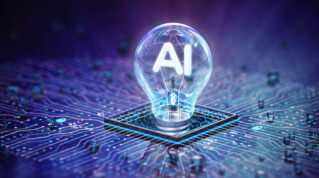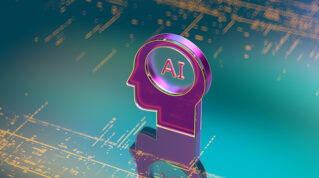The speed at which AI is being introduced to all sectors of society has presented new challenges, certainly, but also opportunities – and none more so than in the field of training.
AI – and its capabilities – is something that needs to be understood by everyone, but especially trainers and educators. Its influence and growth is already with us.
Concerns about emerging technology are nothing new and the education world is not immune.
That is why, while some students and apprentices may worry about how their jobs may be affected, it is incumbent on educators to give them a curriculum and the careers guidance to make sure their decisions are informed.
After decades in the construction and aviation industries, we are both of the view that AI should be explained thoroughly and honestly, but grounded in industry insights so it can meaningfully factor into an apprentice’s career choices.
Informed apprentices should embark on their careers with their eyes wide open about the different ways AI will impact their future roles.
Put simply, there is no point in an apprentice coming out of training with the mistaken belief that the way things are done now will be the way they’re done in ten, five or even two years. Everyday practices like recording results, ordering products and taking measurements will be increasingly digitised and automated.
Those jobs could even be performed by artificial intelligence at some point but – and this is crucial – there will still need to be a person feeding in data and pointing AI in the right direction. Training apprentices to control AI will be fundamental for educators.
What employers want
AI is already changing the way that core jobs and tasks in both aviation and construction are carried out and both industries are already innovating at a rapid rate.
Passengers will increasingly see AI taking an active role in their travels. It is being used to visually scan airport baggage and connect it with a passenger, superseding labelling systems, and there’s even ongoing research into how AI might clear pilots for take-off.
In construction, AI is improving building design at such a pace that it is proving a turning point in the sector and increasing efficiency. It is also being used to forecast different scenarios in construction projects and calculate different outcomes.
That means training providers should be equipping students with at least a basic concept of AI and how it works in their chosen sector.
Employers we’re working with are on the lookout for people with these skills, or at least the capability to learn them, so give your students a head start by preparing them for that reality.
AI-informed modules
Teaching construction-related AI should be about guiding students towards taking a critical view of the different technologies and then allowing them to structure projects that demonstrate an in-depth understanding of the subject. Perhaps technology experts could be brought in to share their experiences.
Part of a module might teach how a cloud-based digital twin technology platform connects the physical and digital worlds to offer real-time operational insight into the performance of building facilities, for example.
On the more physical side, teaching apprentices about bricklaying might involve AI data analysis from motion-capture suits that track a worker’s posture to offer guidance on how to carry bricks with less strain on the joints.
So how, with a class of students in front of you, do you teach them about their future interaction with AI?
While a vast part of any course will still be about teaching core skills such as working in a team or managing projects, individual modules could allow students to specialise in digital approaches appropriate for their career path.
AI is of course changing the nature of jobs but there are tens of thousands of vacancies and the future for apprentices is exciting.
Evolution, not revolution, in training
Will there need to be tweaks to the curriculum and additional qualifications? Yes, that is almost certain – but it should be evolution, not revolution. Educators have for decades been doing a great job preparing apprentices for work and will certainly be up to this important task.
Overall, AI will impact on us all and must be understood by those who teach, but it should always be remembered that most technology still requires a degree of human intervention.
There has been a lot written about AI and the jobs market but it’s the ‘how, where and when’ around AI that is key and very much in the hands of business leaders.
Keeping pace, predicting and working with our academic partners will be crucial in supporting the next generation of recruits. The really intelligent way of working is to maintain older, more traditional skills and integrate them with new skills and ways of working.
We are entering the fourth industrial revolution and it’s happening at a pace in front of our eyes. The best thing to do is embrace it. We are proud to support the latest AI-based early career opportunities at Talentview Construction and Talentview Aviation.


















Your thoughts